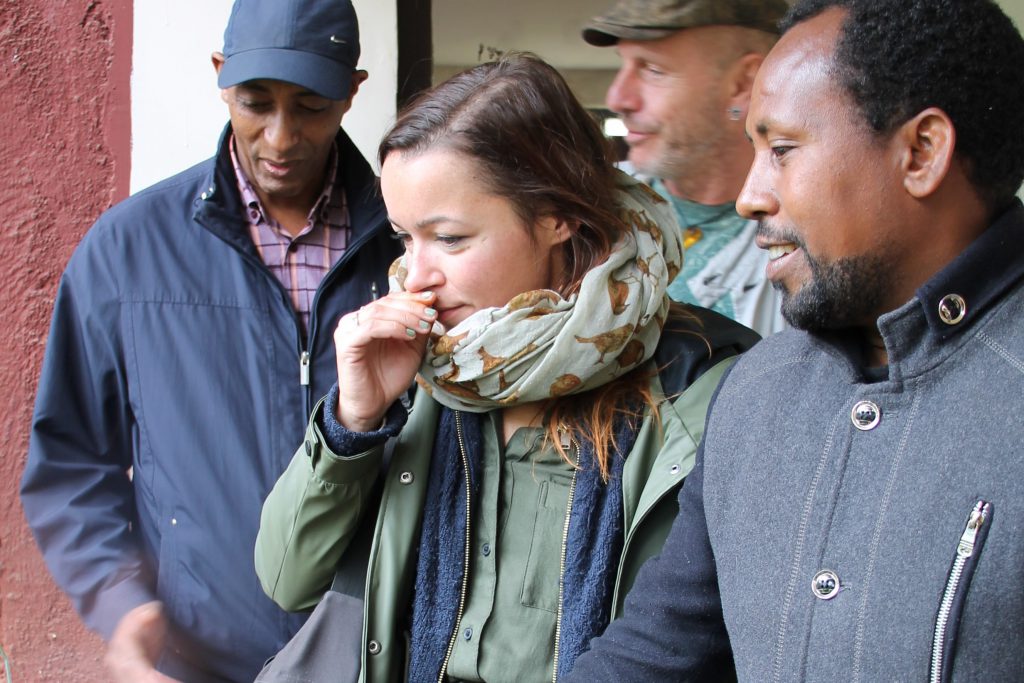1. Inclusive school garden

A school garden for all
Since 2008, all people have the right to equal education.
The United Nations has laid this down in an agreement.
This agreement on the rights of disabled persons is also called Disability Rights Convention.
Two schools show that this idea can become reality.
The two schools are called Vocational Training Centre 12 (‘Berufsschulzentrum 12’) and German Church School. The first is in Leipzig (Germany) and the second in Addis Ababa (Ethiopia).
They build a school garden together, one in Leipzig and one in Addis Ababa.
Children with disabilities are involved too.
The garden teaches them many things:
What does a garden look like without barriers?
How do schools from different countries work together?
The students also learn something in different subjects: For example, in crafts, biology, maths and social studies.
They will finish the school gardens by the end of 2019.
Then, each school will have two self-made containers with plants.
German herbs are in one container.
Ethiopian herbs are in another container.
The containers are about one meter high.
Even people who sit in a wheelchair or see poorly can touch the plants.
You can smell these herbs and taste them.
You can find a text in German, Amharic and Braille signs for the blind on the containers. These texts explain the plants.
This will enable people in Ethiopia and Germany to understand each other better.
Sarah Junge and Frank Böhme, both of Leipzig, handle the project.
Sarah Junge is an inclusion pedagogue at the ‘Vocational Training Centre 12’ (‘Berufsschulzentrum 12’).
Frank Böhme is department head at the same school.
Merdassa Kassaye heads the project in Addis Ababa.
He manages the social work at the German Church School.
The two partner schools want to arrange that three to four students can visit the other country.
Teachers, social workers and the inclusion pedagogue help with the project.
Together with the students, they build the containers for the herbs.
They also design the beds for the herbs, plant and label them.